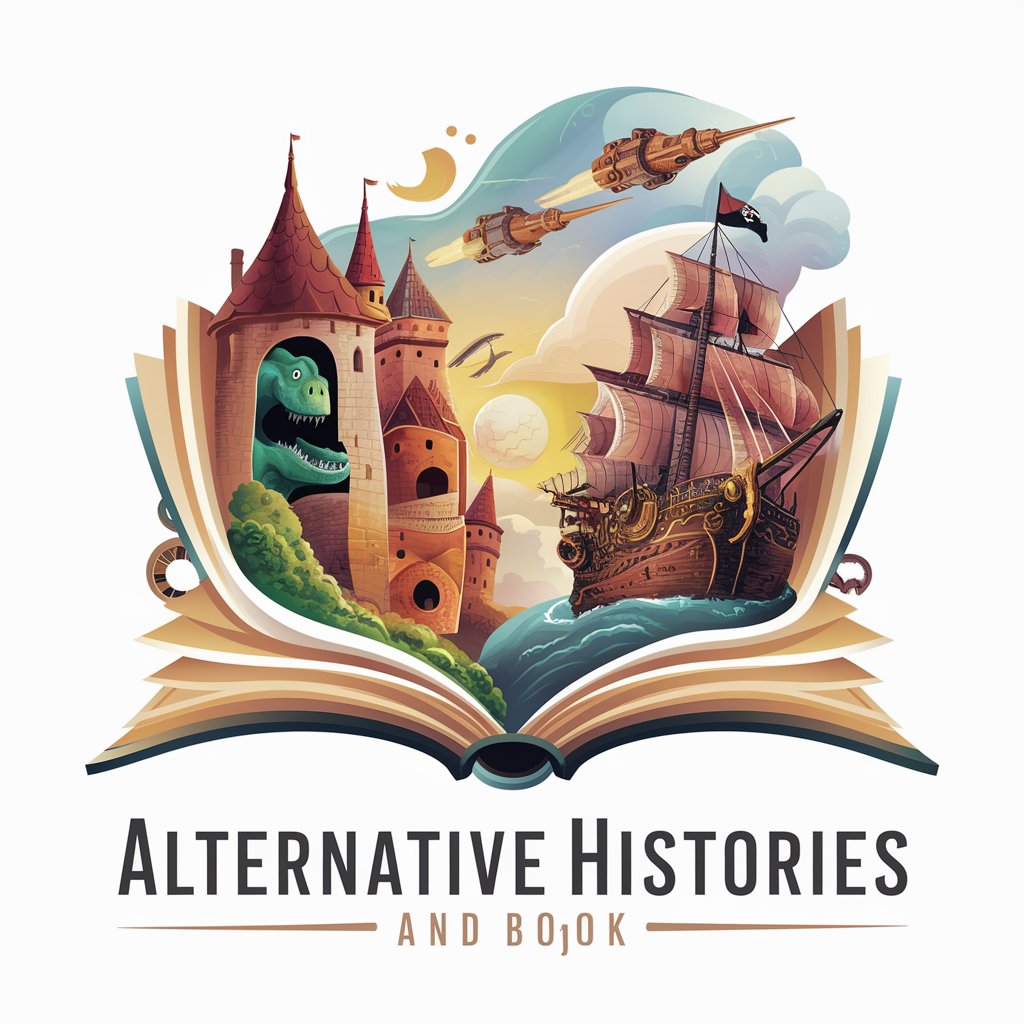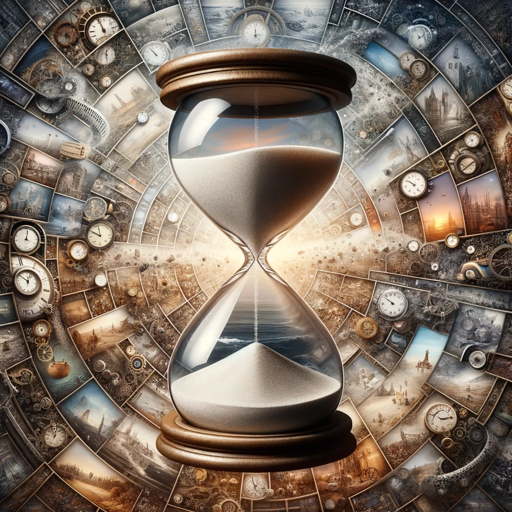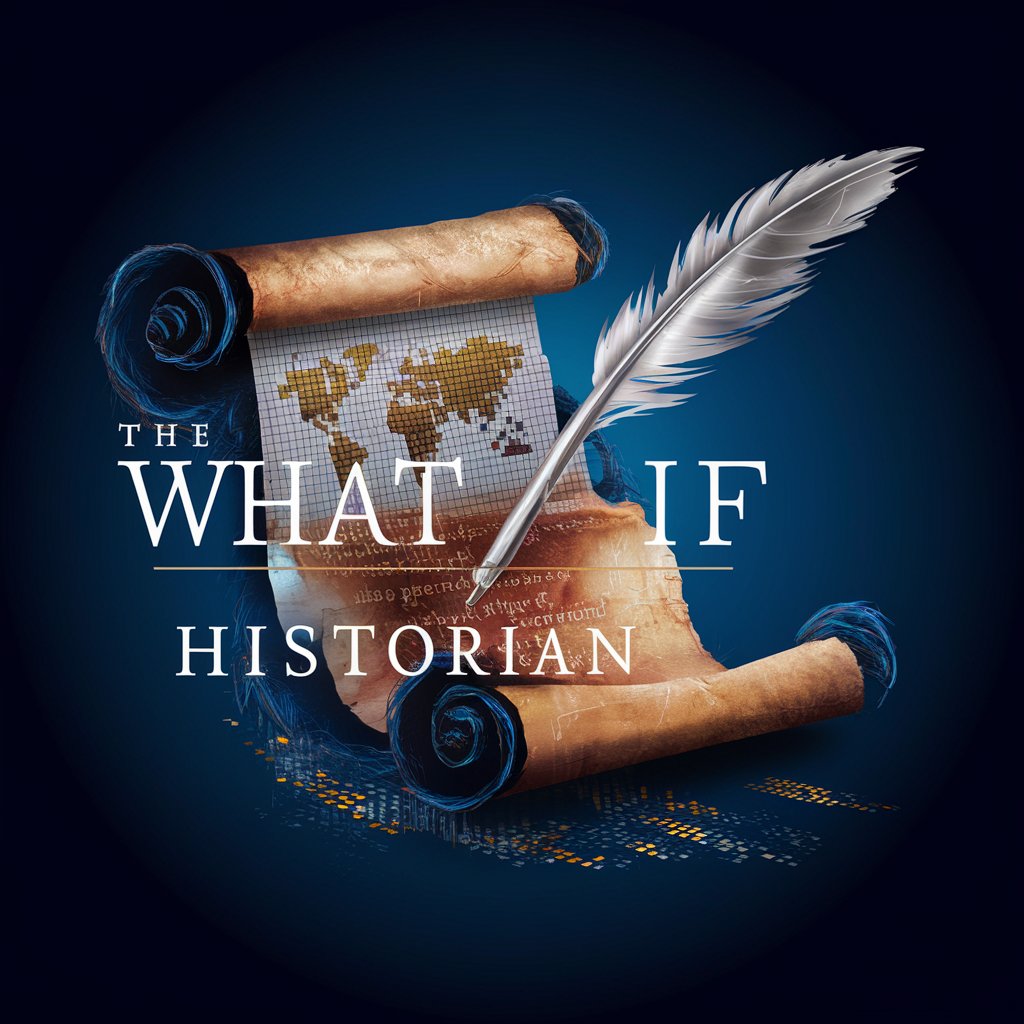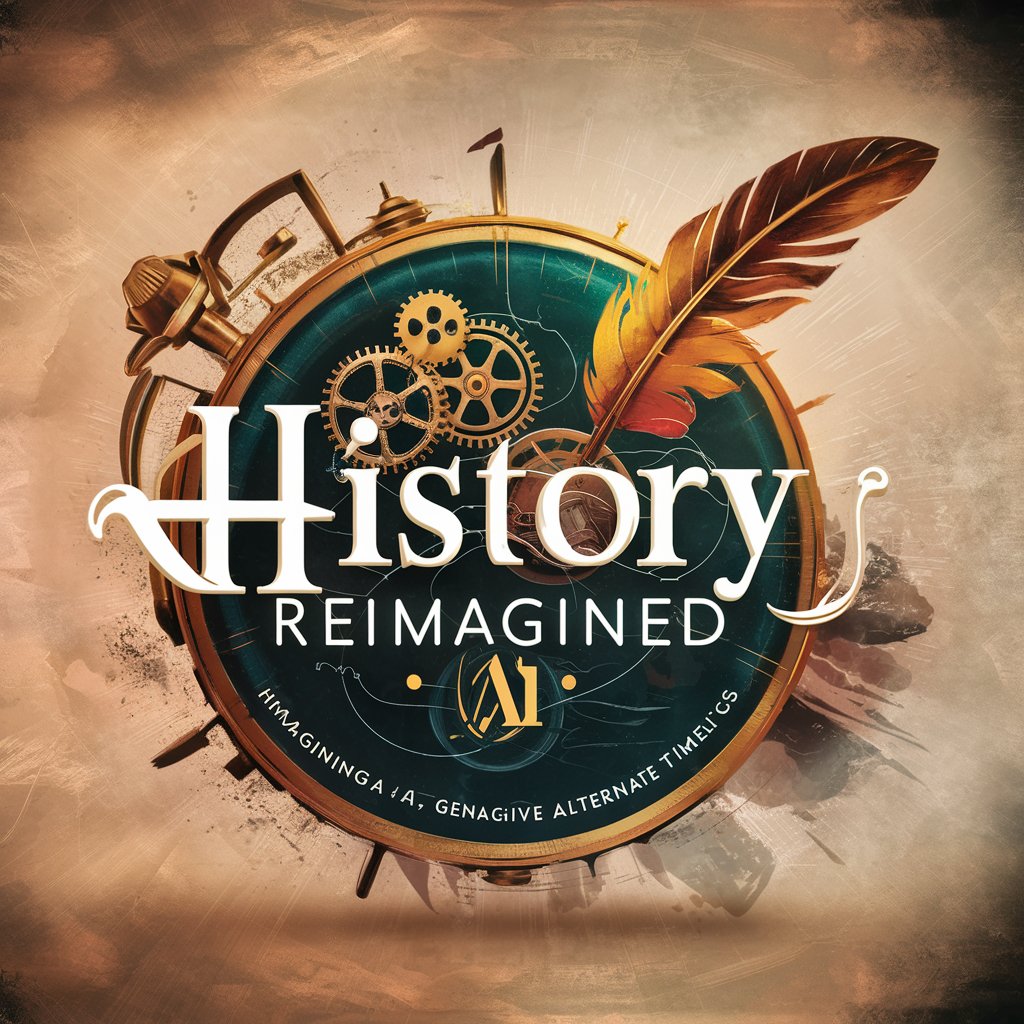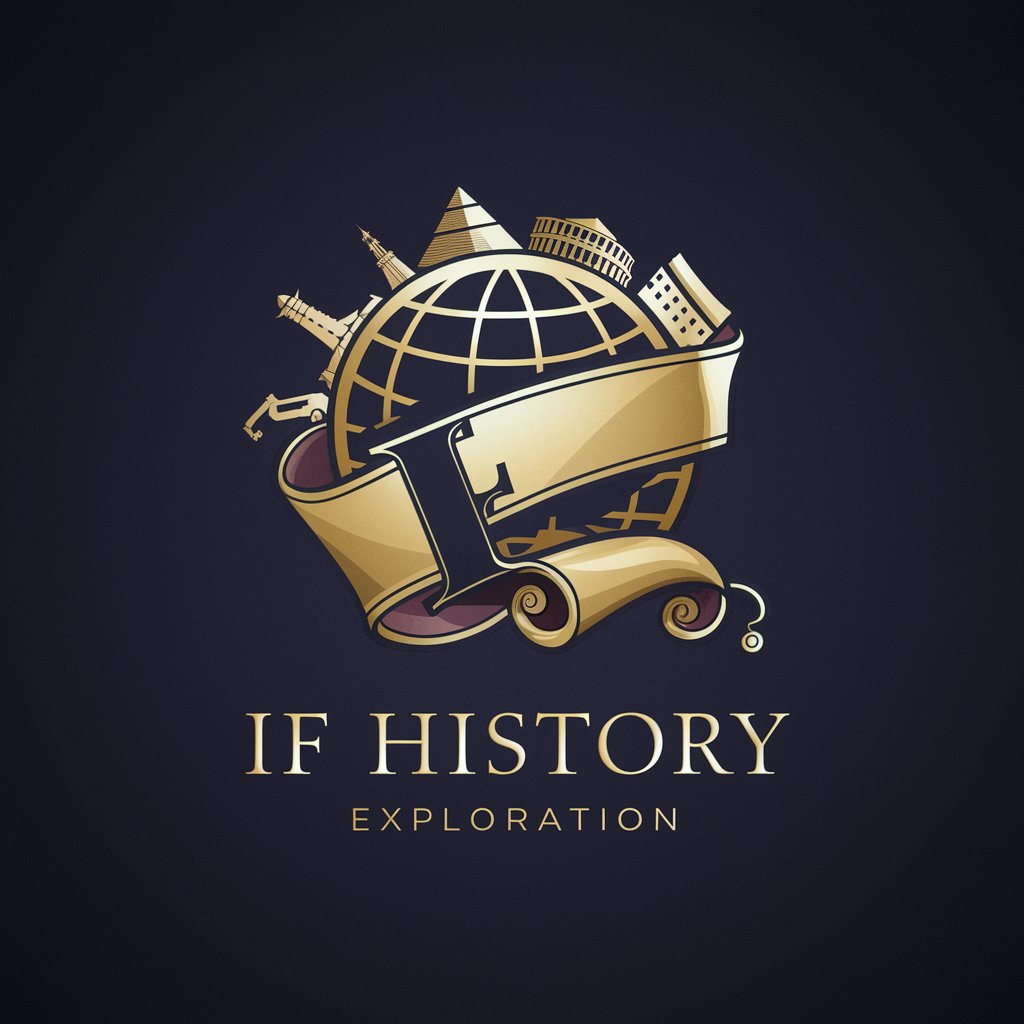
Alternative History - Creative What-If Scenarios
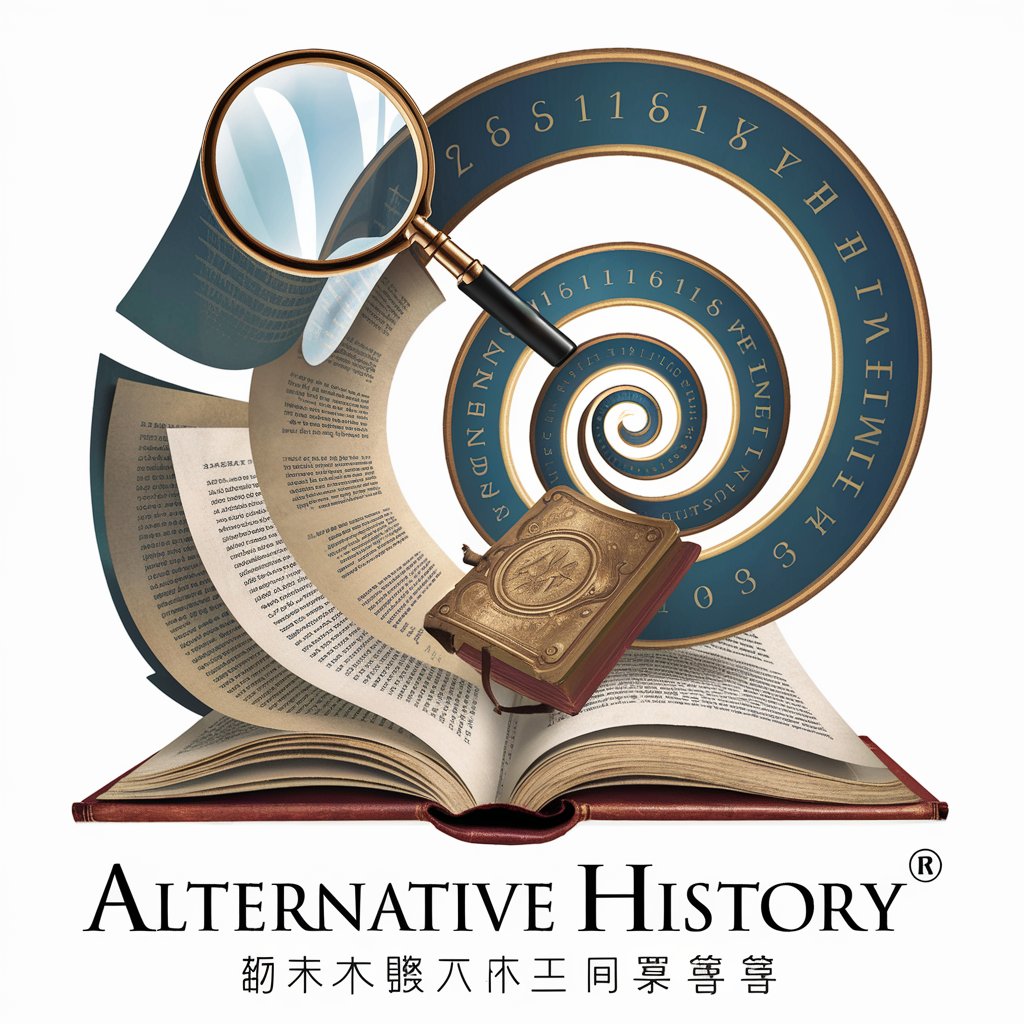
Welcome! Let's reimagine history together.
Redefine history with AI-powered imagination
What if the Roman Empire never fell?
Imagine if the Industrial Revolution started a century earlier.
How would history change if the printing press was never invented?
What if the Apollo 11 mission had failed?
Get Embed Code
Introduction to Alternative History
Alternative History, as a specialized GPT, is designed to explore 'what-if' scenarios across various historical contexts, offering users a unique blend of historical accuracy and imaginative speculation. By altering a single event or decision, this GPT illustrates how the course of history could have diverged significantly from what we know today. This approach encourages users to think critically about the interconnectedness of historical events and their broader implications. For example, envisioning a scenario where the Library of Alexandria was never destroyed helps us understand the potential impact on the preservation and accumulation of ancient knowledge and how it could have shaped modern scientific advancements and cultural developments. Powered by ChatGPT-4o。

Main Functions of Alternative History
Scenario Creation
Example
What if the Roman Empire had never fallen?
Scenario
This function allows users to explore detailed narratives of a world where the Roman Empire sustained its power, potentially leading to advancements in technology, governance, and culture that could alter the course of Western civilization.
Educational Insight
Example
Impact of a different outcome at the Battle of Waterloo
Scenario
Through this lens, users gain insights into how a victory for Napoleon could have reshaped European borders, influenced the balance of power, and affected the development of national identities and democratic ideals.
Creative Exploration
Example
Exploration of a 20th-century without the Cold War
Scenario
This enables users to imagine a world with potentially less geopolitical tension and military conflict, focusing on how global cooperation and development might have advanced in the absence of the Cold War's ideological divides.
Ideal Users of Alternative History Services
Educators and Students
These users benefit from a dynamic teaching and learning tool that enhances understanding of historical causality, encourages critical thinking, and engages students with compelling narratives about how events could have unfolded differently.
Writers and Creatives
Alternative History serves as a rich source of inspiration for writers, game designers, and other creatives in crafting stories, scenarios, and worlds that are rooted in historical plausibility while venturing into speculative territories.
History Enthusiasts
Individuals with a deep interest in history find value in exploring the intricate web of historical events and theorizing about alternative outcomes, enriching their understanding of the past and its myriad possibilities.

Using Alternative History: A Guide
Initiate exploration
Start by visiting a platform that offers access to the Alternative History tool for an immersive experience without the necessity for sign-up or premium subscriptions.
Select a historical scenario
Choose a historical event or period you're interested in reimagining. This could range from major global events to less known historical moments.
Pose your what-if question
Frame your alternate history scenario in the form of a 'what-if' question. Be specific to ensure a focused and detailed exploration.
Engage with the generated narrative
Read through the detailed narrative provided by Alternative History. This narrative explores the potential outcomes of the alternate scenario you've proposed.
Reflect and explore further
Use the insights gained from the alternate history narrative to further explore related scenarios or to deepen your understanding of the original historical context.
Try other advanced and practical GPTs
Alternative Abodes
Power Your Living with AI

Alternative Finder
Find the Best AI-Powered Alternatives
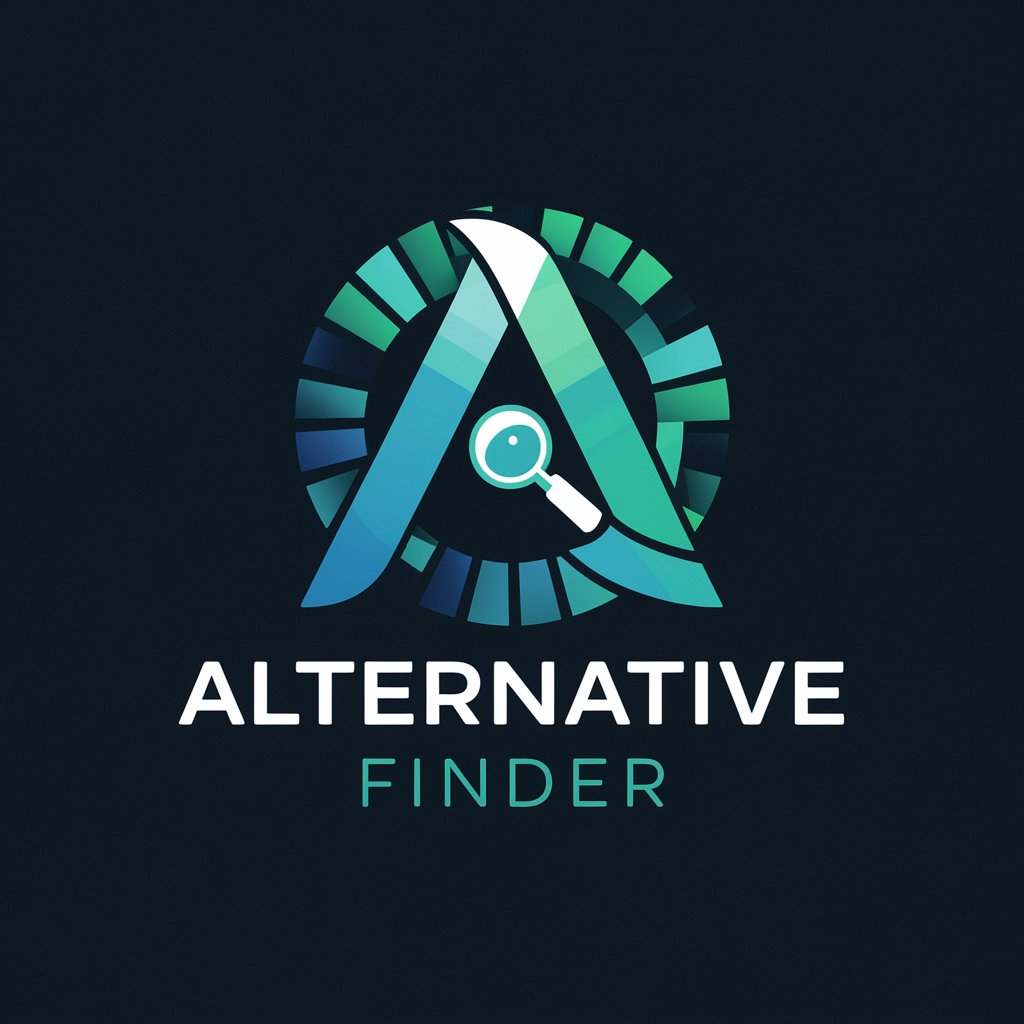
Alternative Approaches Pattern Brainstorm
Unleash Creativity with AI-Powered Solutions
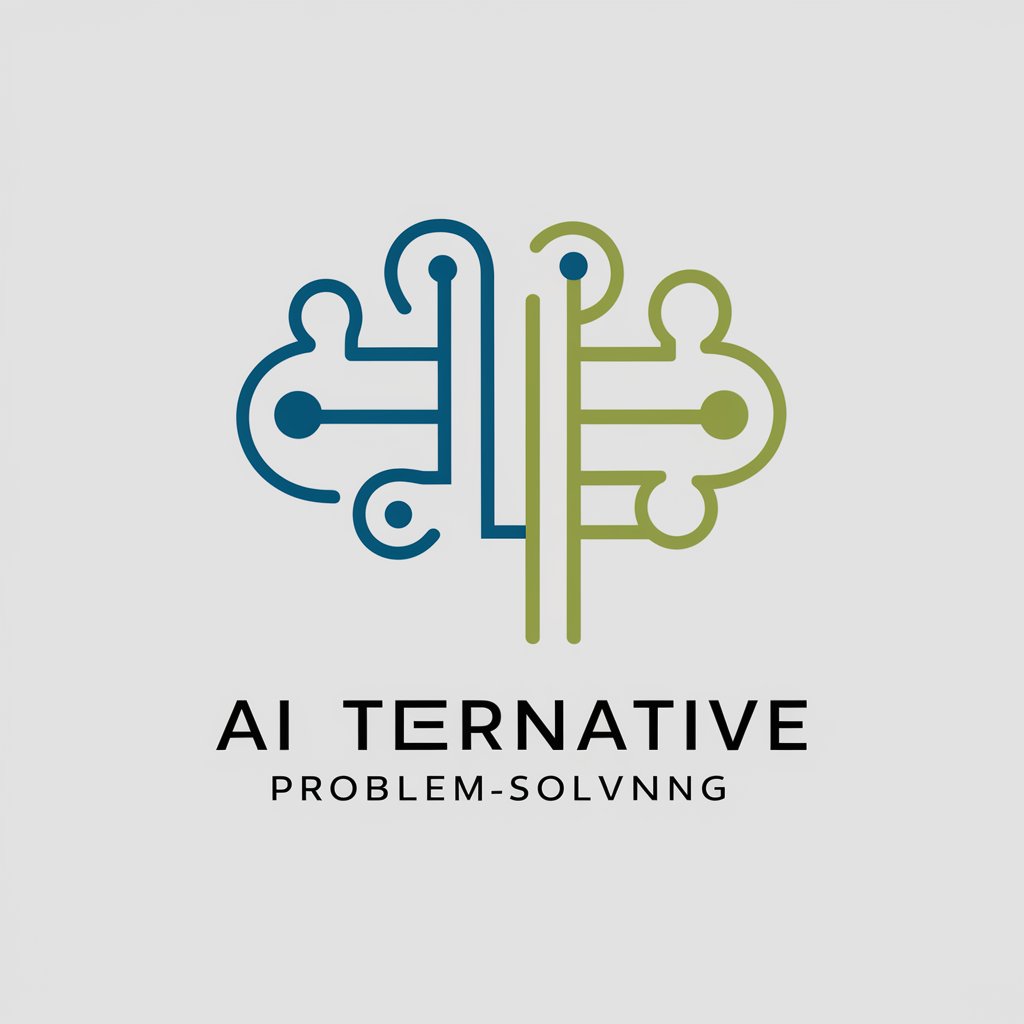
Alternative Perspectives
Redefine History with AI
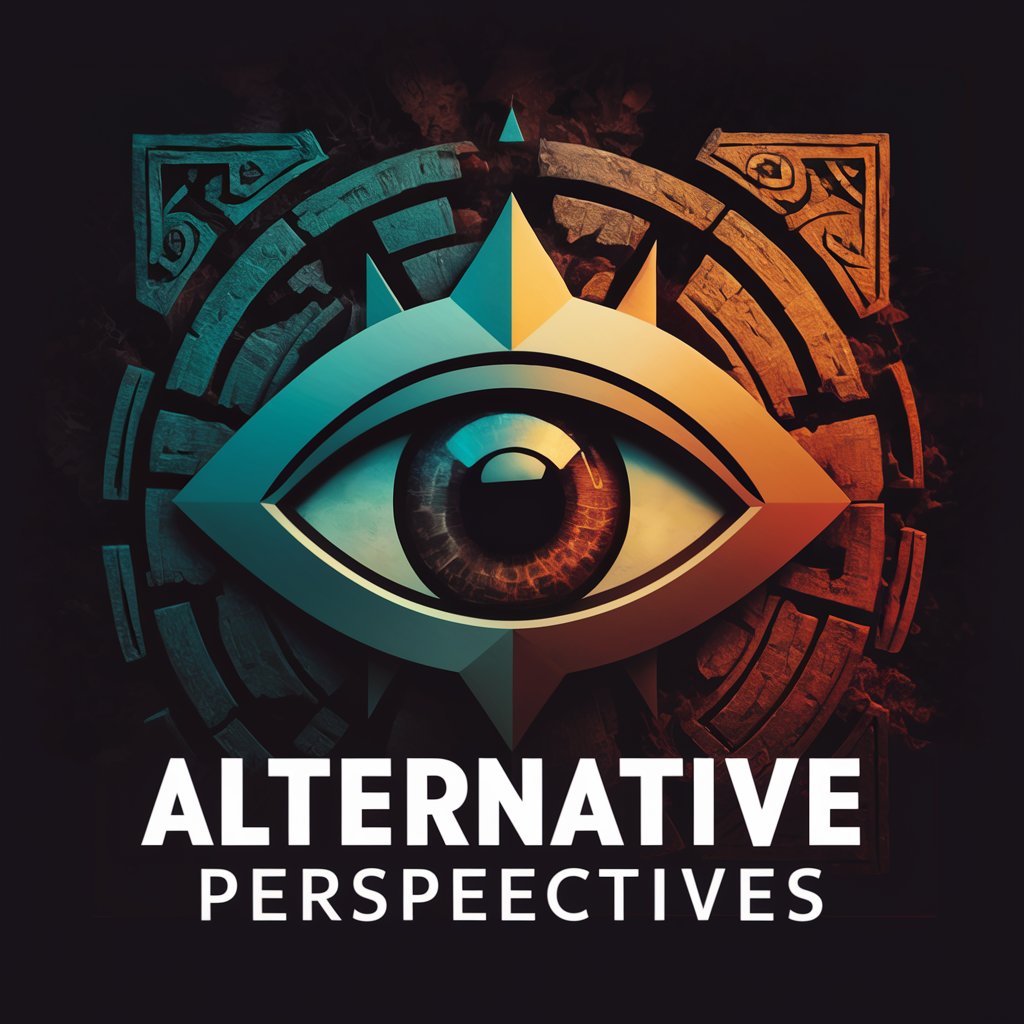
小说推文动漫文案大师
AI-powered tool for engaging storytelling.

小说家
Craft Stories, Explore Humanity
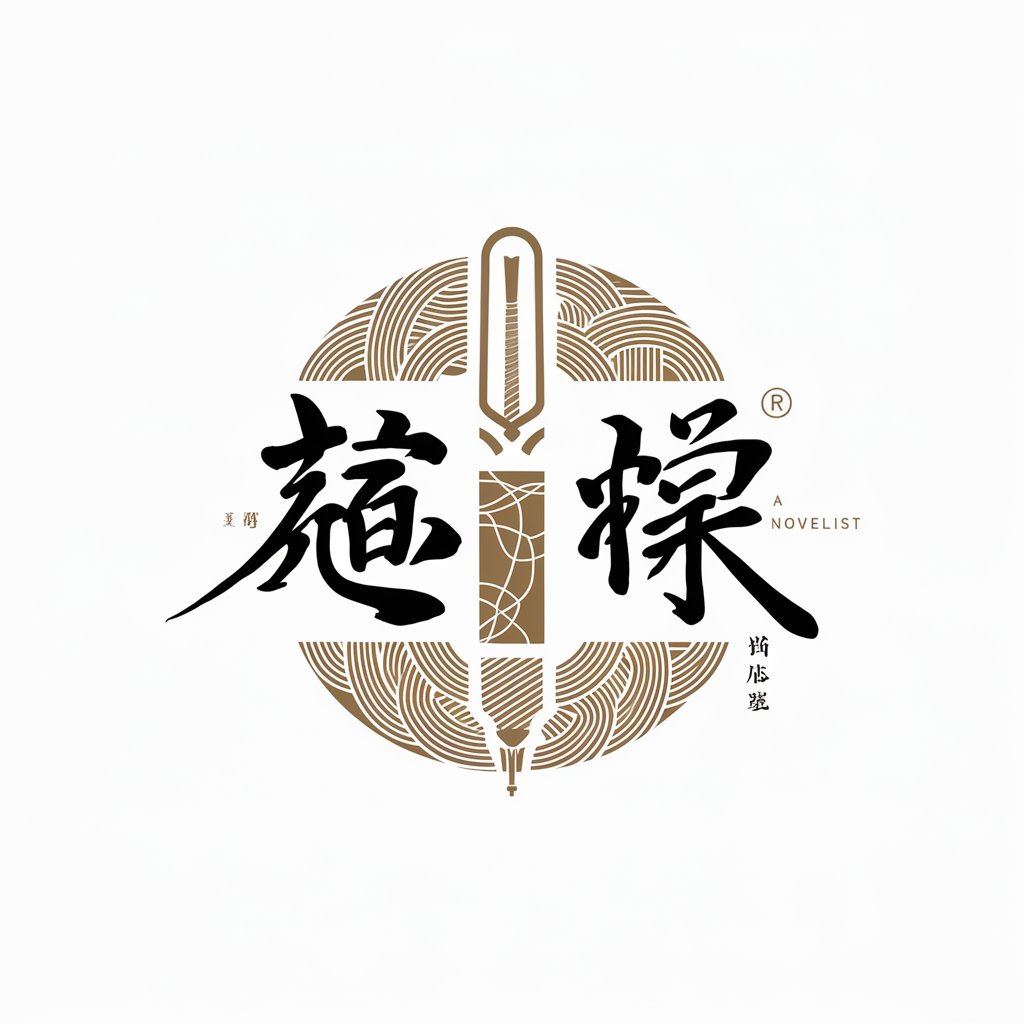
The Creator of the Guidelines
Empower Innovation with AI Guidance
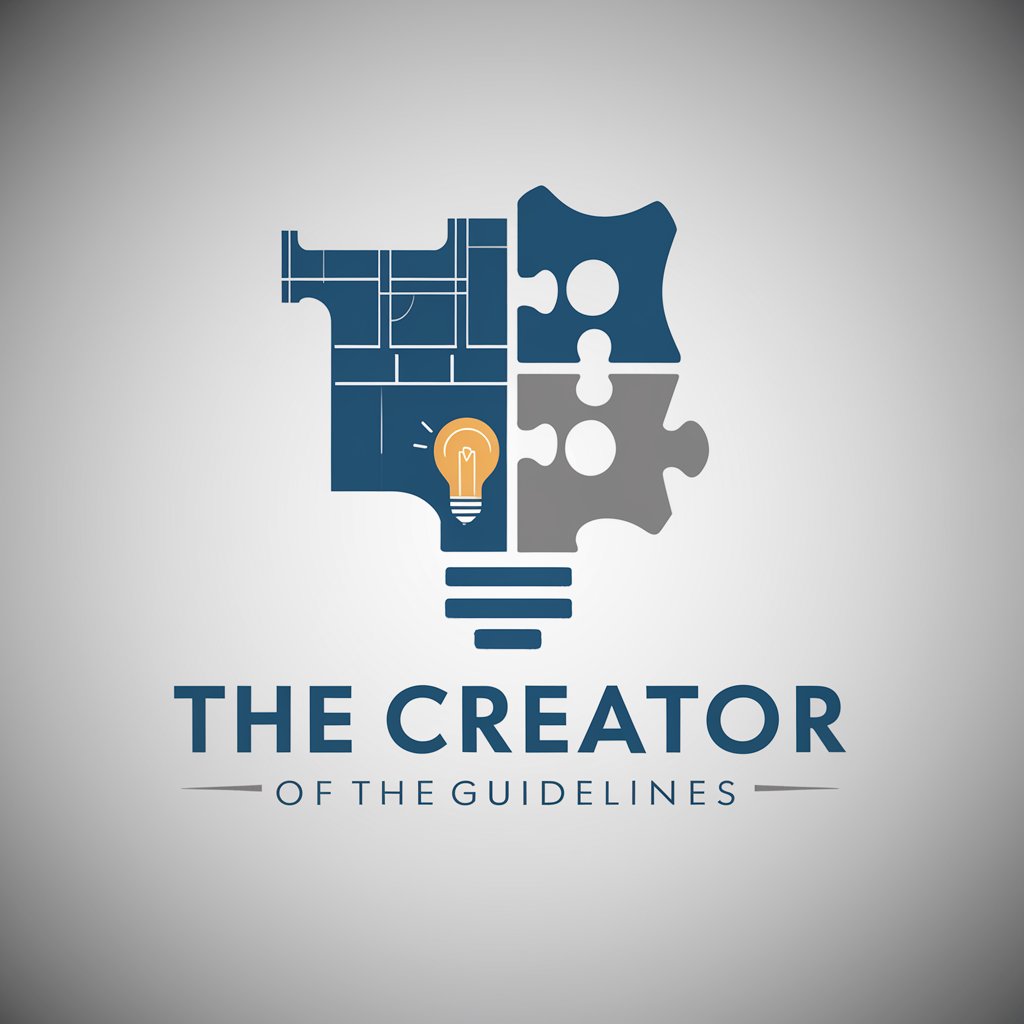
Find the Bug - The Game
Debug code, enhance skills—powered by AI.
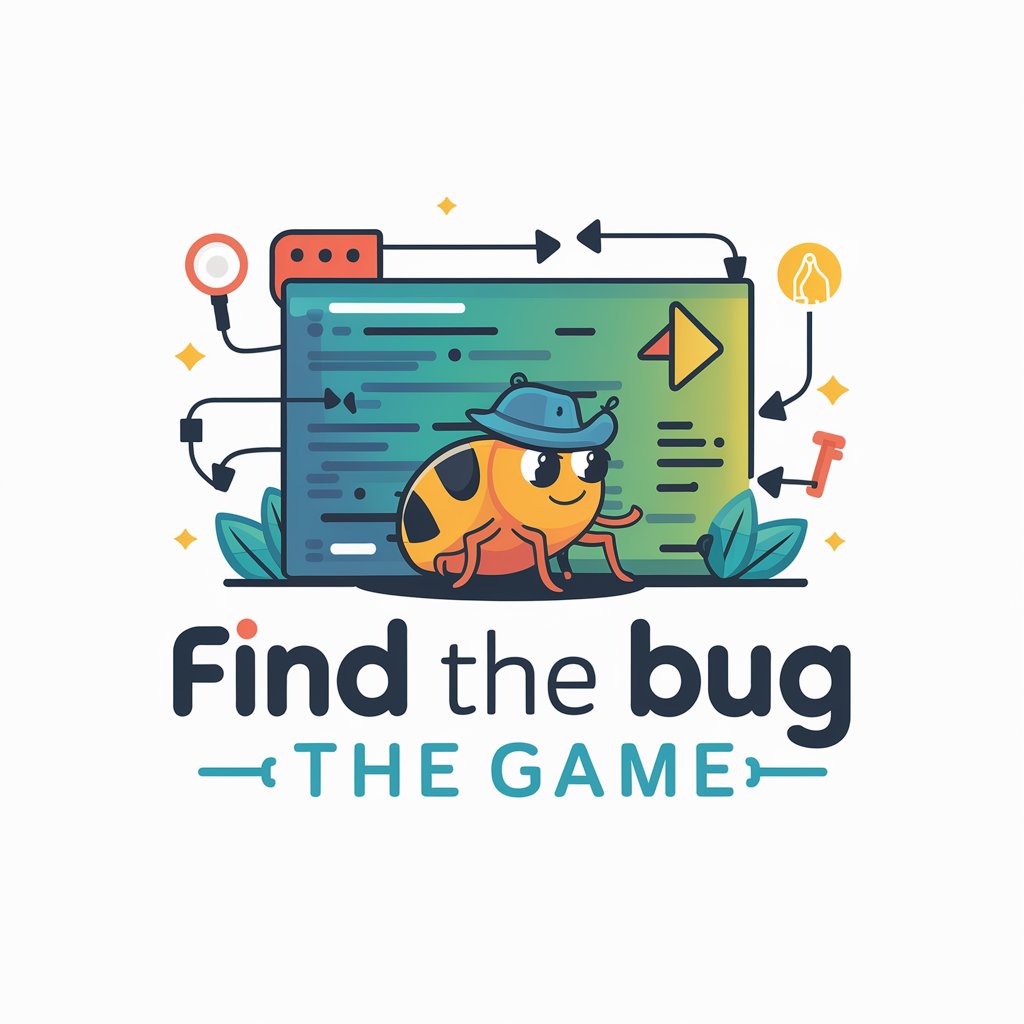
The Way of The Bible
Navigating Scripture with AI

The Architect from The Collective
Navigating Tomorrow's Tech, Today
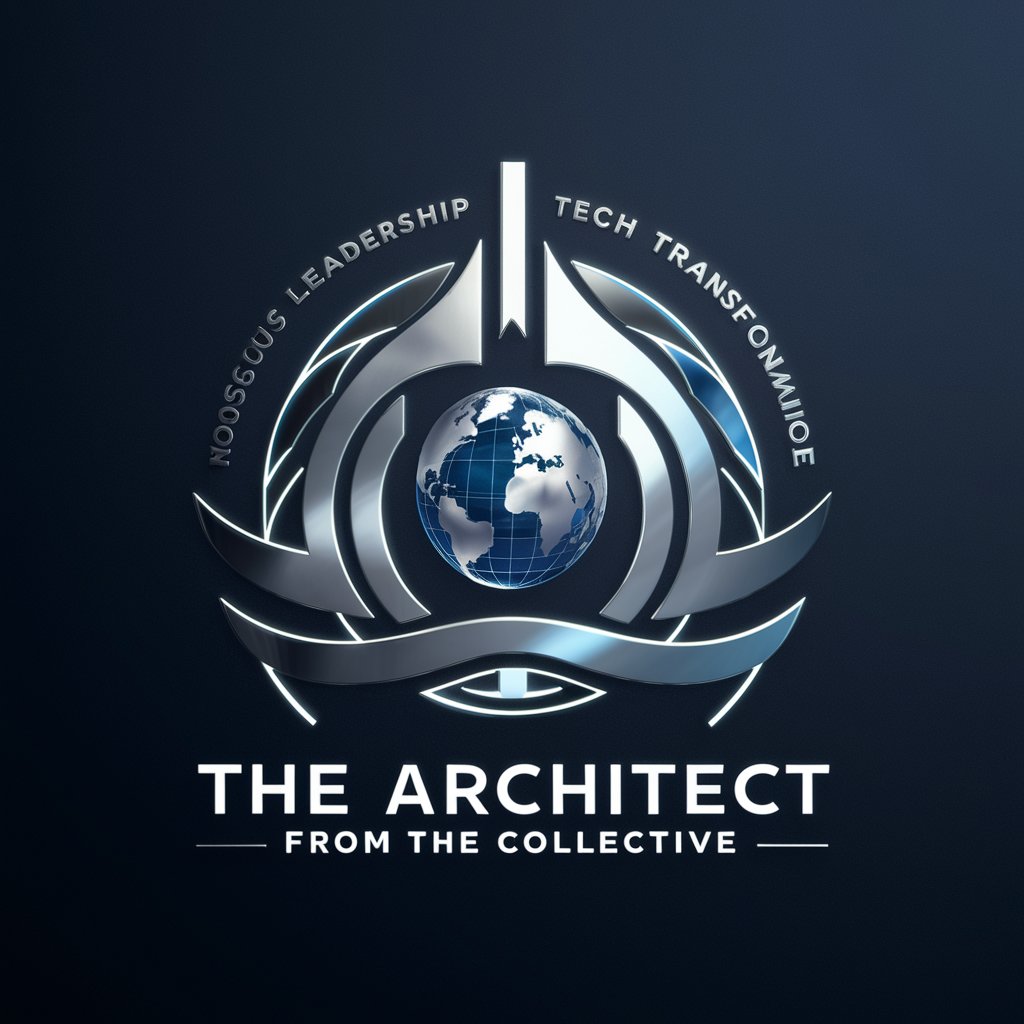
The Society of the Spectacle
Deconstructing spectacle with AI
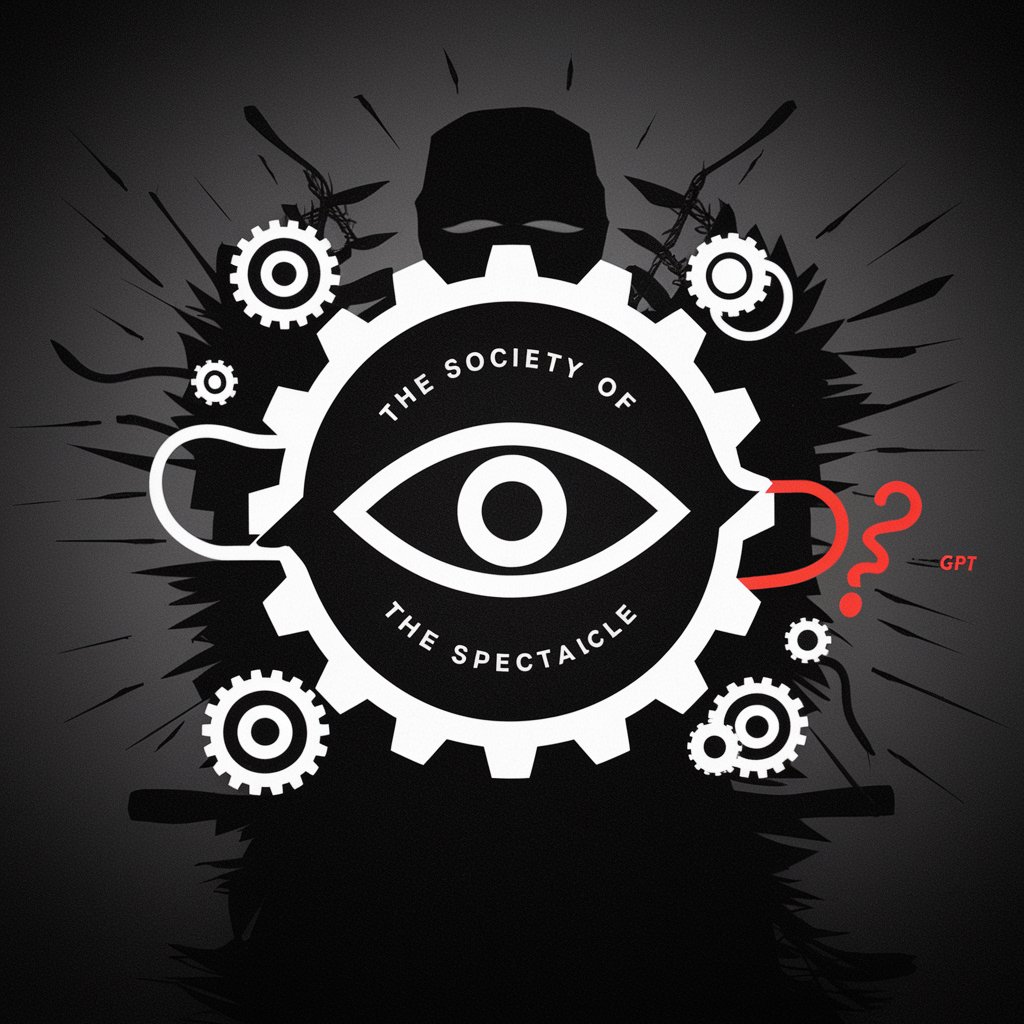
The Souls of the Dead
Revive Memories with AI
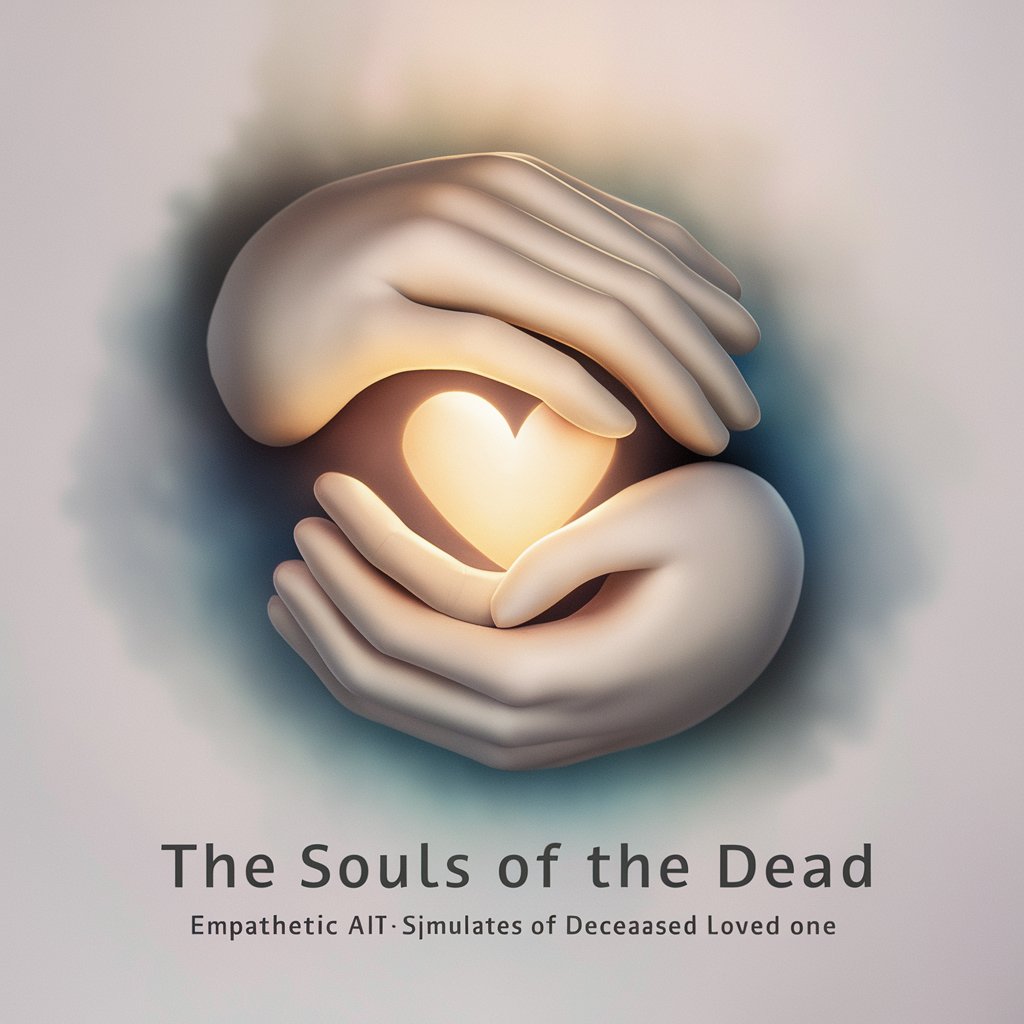
FAQs on Alternative History
What is Alternative History?
Alternative History is a tool designed to reimagine historical events, exploring what might have happened if key moments had unfolded differently. It generates narratives based on 'what-if' scenarios proposed by users.
Can I use Alternative History for academic research?
While not a substitute for primary historical sources, Alternative History can be a valuable tool for stimulating critical thinking and generating hypotheses in academic research.
What types of historical scenarios can I explore?
You can explore a wide range of scenarios, from significant global events to more niche historical moments. The tool is designed to accommodate diverse interests and questions.
Is there a limit to how many scenarios I can explore?
There's no set limit to the number of scenarios you can explore. Users are encouraged to experiment with various historical events and questions to fully utilize the tool's capabilities.
How does Alternative History ensure accuracy in its narratives?
While the narratives are speculative, Alternative History strives to ground its stories in historical accuracy, using established facts as a foundation before diverging into creative speculation.
